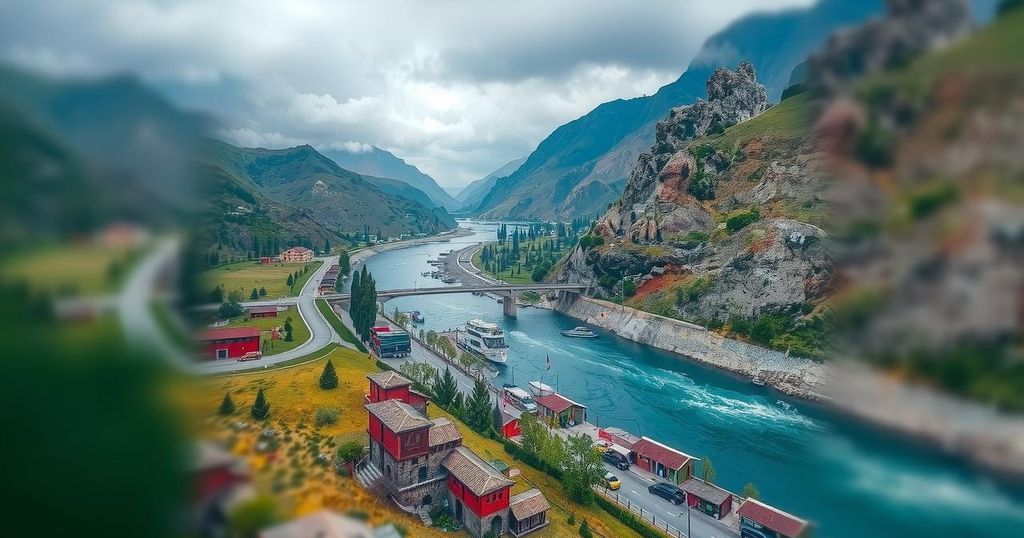Ismatullah Irgashev, Uzbekistan’s special representative for Afghanistan, declared that Afghanistan has the right to utilize water from the Amu Darya River, clarifying ongoing negotiations regarding how this water will be shared. The Qosh Tepa Canal is planned to divert a significant amount of water from the river, raising concerns in Uzbekistan about potential impacts on the regional water balance. The dialogue reflects a cooperative approach between the two nations regarding water resource management, aimed at addressing their respective needs without conflict.
Uzbekistan’s special representative for Afghanistan, Ismatullah Irgashev, has affirmed that Afghanistan possesses the right to utilize water from the Amu Darya River. This stance is framed within discussions around the allocation of water resources, as he noted, “The question is which country will use how much, as well as the quota for its use, taking into account shallowing of the river.” Irgashev also mentioned that there is no ongoing conflict with the Islamic Emirate of Afghanistan (IEA) regarding water rights. Uzbekistan has established a joint commission with Afghanistan aimed at exploring the construction of the Qosh Tepa Canal, a project projected to span 285 kilometers with a width of 100 meters and a depth of 8.5 meters. This canal is designed to divert up to 10 cubic kilometers of water per year from the Amu River, accounting for approximately 20% of the river’s overall volume. Concerns have been raised by Uzbekistan regarding potential changes to the water regime in Central Asia as a result of this construction; however, the IEA maintains that the project will not adversely impact Uzbekistan’s water interests.
The Amu Darya River is a critical water source in Central Asia, shared by Afghanistan and Uzbekistan, among other countries. The use and management of water resources from this river are particularly significant due to varying national interests and the ecological implications of water diversion. The Qosh Tepa Canal project represents a substantial investment by Afghanistan, aimed at improving agricultural productivity and access to water, amid ongoing bilateral dialogues to address mutual concerns over water distribution. Maintaining peaceful negotiations regarding water rights is vital for regional stability and cooperation between the nations involved, particularly in light of environmental changes affecting river flow.
In conclusion, Ismatullah Irgashev’s statements underline the recognition of Afghanistan’s rights to the Amu Darya River water while emphasizing the need for a structured approach to resource allocation. The establishment of the joint commission is a proactive step towards collaborative governance of shared water resources, which is essential for maintaining harmonious relations between Afghanistan and Uzbekistan. As both nations move forward with the Qosh Tepa Canal, the emphasis will be on equitable use and mutual benefit, alleviating regional tensions regarding water scarcity.
Original Source: www.ariananews.af






